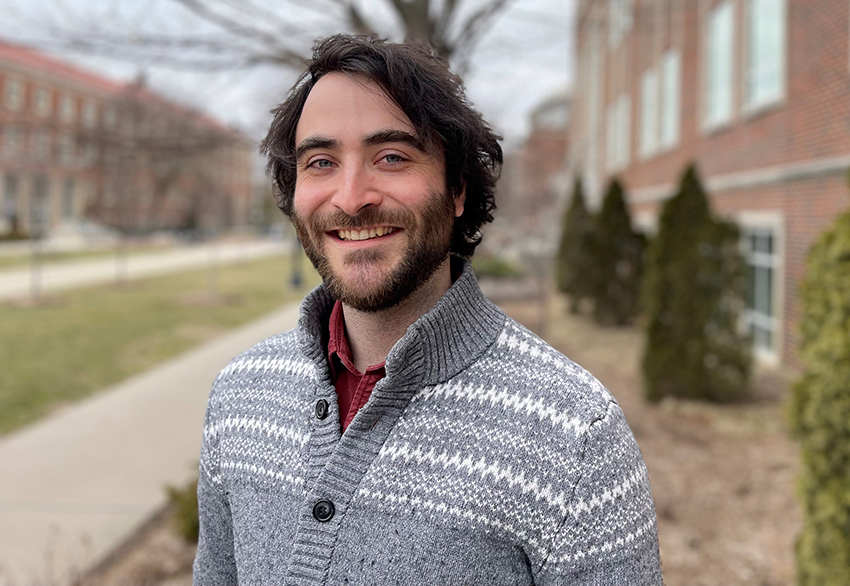Purdue EAPS welcomes new faculty member Roger Bryant
02-17-2023

Using sedimentary geochemistry to understand the origins and evolution of life
The Purdue University Department of Earth, Atmospheric, and Planetary Sciences at (EAPS) welcomes Dr. Roger Bryant to the faculty as an assistant professor for the spring of 2023. Bryant studies Earth’s geochemical and biological evolution using a variety of cutting-edge spectrometric and spectroscopic methods, coupled with field-based studies.
“I am interested in how Earth became hospitable for complex lifeforms like humans. To answer this question, I use sedimentary rocks like limestones as 'time capsules' to get a picture of how environmental conditions on our planet have changed through time,” explains Bryant. “For example, oxygen in our atmosphere is crucial for our existence, but the chemical compositions of ancient rocks suggest it wasn't always so plentiful. We think the atmosphere became richer in oxygen in two 'Great Oxidation Events' roughly 2.3 billion and 600 million years ago, which paved the way for the evolution of animals. However, there is still a great deal we don't know about the history of life, oxygen, and other important environmental conditions. To answer these questions, we need to find creative ways to 'read' our geological archives - this will be my group's specialty in EAPS.”
In addition to his cutting-edge research on the origins of life, Bryant will be teaching the next generation of Boilermakers starting in the fall of 2023. He will begin with EAPS 100 (Planet Earth) and possibly add EAPS 112 (Earth Through Time) in the spring of 2024. Eventually, Bryant plans to develop higher level classes in Sedimentary Geochemistry and Precambrian Earth History.
“I had visited Purdue a couple of times before I applied,” says Bryant, “and I found EAPS to be a welcoming and exciting place. I have since come to learn that Purdue is incredibly ambitious and the perfect place to build a world-class scientific laboratory and research group.”
When not diving into the wellspring of life on Earth, he enjoys exploring new places and looks forward to getting to know the Greater Lafayette area. Bryant is an avid soccer and reality TV fan, and is looking forward to getting back into indoor rock climbing. Being from a suburb of Manchester, Bryant is of course a Manchester United fan.
Bryant began his quest for scientific discovery as an undergrad in Earth Sciences at the University of St. Andrews in Scotland then moved to the United States to further his education.
“I made the leap across the pond to do a PhD in Dr. David Fike's lab in the Department of Earth and Planetary Sciences at Washington University in St Louis. From 2019 until the end of 2022, I was a postdoctoral scholar in Dr. Clara Blattler's lab in the Dept of the Geophysical Sciences at the University of Chicago. Midwest is the best!”
About the Department of Earth, Atmospheric, and Planetary Sciences at Purdue University
The Department of Earth, Atmospheric, and Planetary Sciences (EAPS) combines four of Purdue’s most interdisciplinary programs: Geology & Geophysics, Environmental Sciences, Atmospheric Sciences, and Planetary Sciences. EAPS conducts world-class research, educates undergraduate and graduate students, and provides our college, university, state and country with the information necessary to understand the world and universe around us. Our research is globally recognized, our students are highly valued by graduate schools, employers, and our alumni continue to make significant contributions in academia, industry, and federal and state government.
Writer: Cheryl Pierce, Communications Specialist